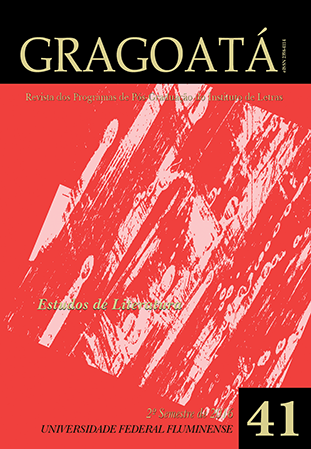Vulgate's enigmas: Columbus as hermeneut
DOI:
https://doi.org/10.22409/gragoata.v21i41.33420Keywords:
Columbus, hermeneutics, Ophir.Abstract
This paper analyzes the legacies of Columbus as the navigator who definitely changes the perceptions of the world, but also as the hermeneut who reads the Vulgate to inquire into the divine plans and the place that he himself would play before the singular events arising from the appearance of the Indiesin the episteme of the time. Following his understanding of the Bible, and the guidelines of his exegesis, we examine some of his writings, such as his letters, his chronicles and the work known as the Libro de las profecias, and we describe in particular the assignments given by the Almirante to toponyms and places like Ofir or Paradise, that, according to his interpretations, could confirm the condition of a sacred geography, forseen by the prophets and authorities, in which the existence of the Americas was already acknowledged.Downloads
Downloads
Published
How to Cite
Issue
Section
License
Authors who publish in Gragoatá agree to the following terms:
The authors retain the rights and give the journal the right to the first publication, simultaneously subject to a Creative Commons license CC-BY-NC 4.0, which allows sharing by third parties with due mention to the author and the first publication by Gragoatá.
Authors may enter into additional and separate contractual arrangements for the non-exclusive distribution of the published version of the work (for example, posting it in an institutional repository or publishing it in a book), with recognition of its initial publication in Gragoatá.

Gragoatá is licensed under a Creative Commons - Attribution-NonCommercial 4.0 International.











